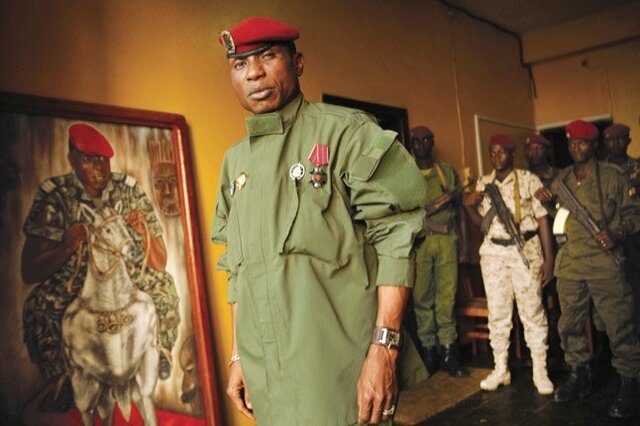Conakry – Guinea’s former dictator Moussa Dadis Camara denied responsibility when he took the stand Monday at a trial of officials implicated in a 2009 massacre.
Camara and 10 other former military and government officials stand accused over the killing of 156 people and the rape of at least 109 women by pro-junta forces at an opposition rally in a Conakry stadium in September 2009.
They face charges ranging from murder to sexual violence, kidnappings, arson and looting. Camara himself is charged with “personal criminal responsibility and command responsibility”.
Presiding judge Ibrahima Sory Tounkara reminded Camara, 57, of the charges the court had brought against him.
“And to the question to know whether you recognise them, you replied in the negative,” Tounkara said.
“Absolutely,” Camara replied before launching into a long monologue citing philosophers Heraclitus and Immanuel Kant along with the Egyptian pharaohs.
ALSO READ | Guinea ex-dictator denies role at 2009 massacre trial
He also evoked God, saying, “If it’s you who gave me power …. if I killed at the September 28 stadium, God, I will not step foot back into Guinea.”
Camara’s deposition was a key moment which survivors and relatives of the victims had been waiting since the trial opened on September 28, 13 years to the day after the massacre.
Outside the court, Conakry residents gathered round television screens in shops and markets to follow the proceedings in the historic trial.
A week ago the hearings had been adjourned, until Monday, after Camara said he was too ill to give testimony.
The lawyer for Aboubacar Sidiki Diakite, a former aide de camp to Camara known as Toumba, has accused Guinea’s ex-leader of preparing the massacre and alleged Camara had faked his illness.
Camara in turn told the court Toumba had prevented him from going to the stadium to restore order.
Toumba, he said, was carrying grenades. “I understood I could not arrest him, he (had) the weapons with him.”
Camara said he could have remained in Burkina Faso and kept out of the trial.
ALSO READ | Guinea parties boycott junta talks on return to civilian rule
“What is the life of a man,” he asked. “It is honour … my honour depends on it.”
One of Camara’s lawyers said his client had been suffering from an exhausting bout of malaria for weeks and that he had the “absolute right” to rest.
At the time an unknown army captain, Camara seized power in December 2008 shortly after the death of Guinea’s second post-independence president, General Lansana Conte, who had ruled for 24 years.
In December 2009, Camara was shot in the head by Toumba and headed to Morocco for medical treatment.
He fled into exile in Burkina Faso, where he was indicted in July 2015 by Guinean magistrates for his alleged role in the stadium massacre.
The former strongman was detained on September 27, a day before the long-awaited trial began in a purpose-built court in the capital Conakry.
Follow African Insider on Facebook, Twitter and Instagram
Source: AFP
Picture: Twitter/@Yamen99771965
For more African news, visit Africaninsider.com


